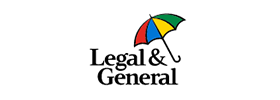Understanding the Causes of House Fires and Insurance Coverage
House fires are a homeowner’s worst nightmare, and knowing what fire causes are covered under your home insurance policy provides peace of mind. At The Select Insurance Agency in Coppell, TX, we consistently help our clients understand these details to ensure they’re adequately secured. Let’s explore the common causes of house fires and how your insurance could provide coverage.
What Triggers House Fires?
Electrical issues, kitchen accidents, heating equipment failures, and smoking incidents commonly cause house fires. Electrical fires could stem from faulty wiring, overloaded outlets, or malfunctioning appliances. Kitchen fires often originate from unattended cooking or grease fires. Fires can also start due to heating equipment, like space heaters placed too close to flammable materials. Smoking-related fires usually occur when cigarettes aren’t correctly extinguished.
Coverage for Electrical and Kitchen Fires
Most standard home insurance policies cover damages caused by electrical and kitchen fires. This accounts for fires resulting from faulty wiring, short circuits, or defective appliances. Whether the fire was caused by an unmonitored stove or an accidental grease flare-up, your policy generally covers the subsequent damage, including structural repairs and destroyed item replacements.
Heating Equipment and Smoking-Related Fires
Fires caused by heating equipment and smoking are generally covered. But there could be some exceptions. For instance, if negligence is involved, your coverage might not apply. Smoking-related fires are typically covered if they align with the policy’s terms and conditions.
Every insurance policy has its fine points. Therefore, it’s essential to understand your specific coverage and any potential exclusions that may apply. At The Select Insurance Agency, we dedicate ourselves to helping Coppell, TX homeowners navigate through their insurance needs. Contact us today to review your policy and ensure you’re entirely protected against fire risks.






















